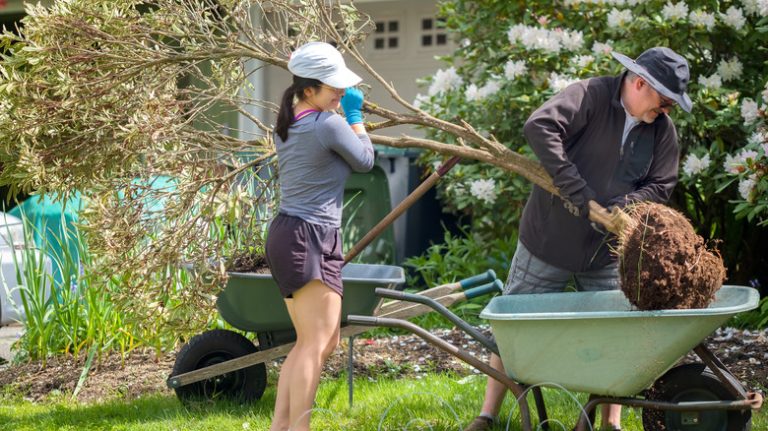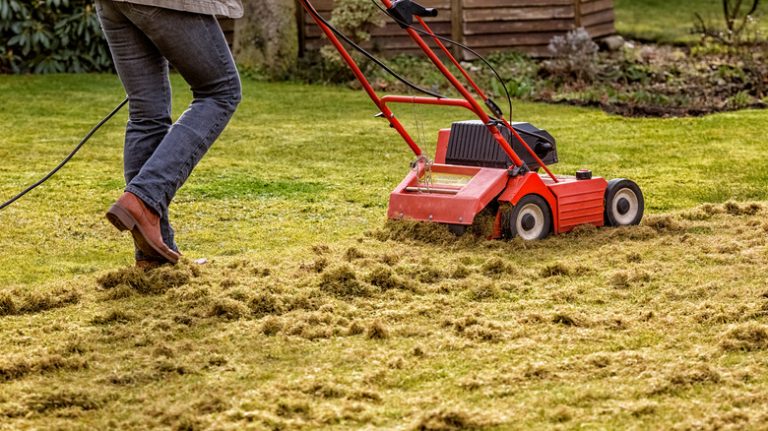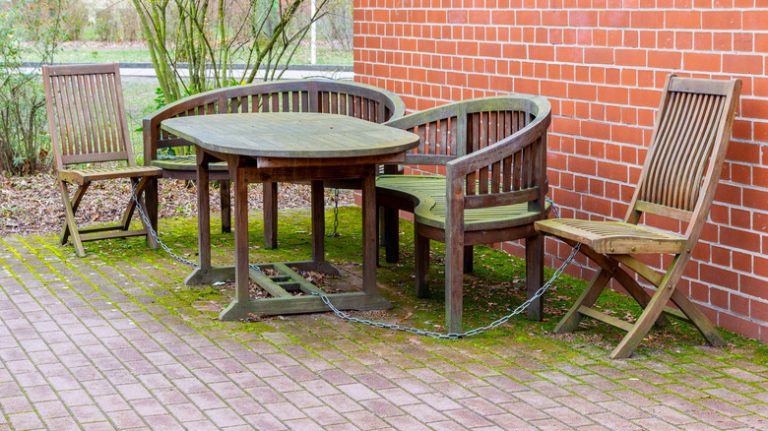A blast of colors in a well-kept garden is a sure-fire way to add that perfect touch to your home. Many would prefer searching for the best flowers with nice fragrances and bright colors, with a year-round cycle. Flowers are a great addition to your garden, but when you want to explore more about the green, serene and beautiful environment, ornamental grasses come into the discussion.
Ornamental grasses are one of the wonders of the plant world as they give that touch of beauty to the environment regardless of their type. However, deciding to introduce them to your garden requires an understanding of what they are. Sometimes, invasive plants can be mistaken for ornamental grasses, and unfortunately, planting these cultivars leads to more harm than good, The City of Portland Oregon’s Environmental Services notes.
If you’re looking for the best decorative grasses to plant in your backyard for that bloom, beauty, and extra effort to protect the ecosystem, you’re at the right place. The perk here is that this bright and colorful greenery requires low maintenance and fit anywhere. In this article, you will read about 15 ornamental grasses to add that perfect color to your space. They all enjoy full and partial sun, grow in all types of soil in zones 2 to 8, and reach around 5 feet to 25 feet tall, and about 10 inches wide.
1. Blue oat
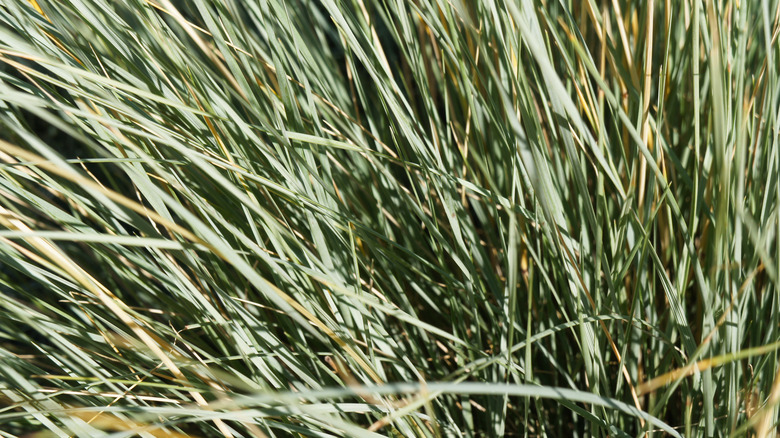
Blue oat (Avena sempervirens syn. Helictotrichon sempervirens) is one of the most beautiful ornamental grasses to grow in your garden. With a wide sprout of blue-green leaves, and yellow flowers blooming at their tip during the summer season, this type adds a touch of brightness to your lawn, says Monrovia. Thinking about what it’ll give during winter? Gardening Know How states that blue oat grass maintains its beauty during this period and changes to an attractive light brown color.
2. Purple millet
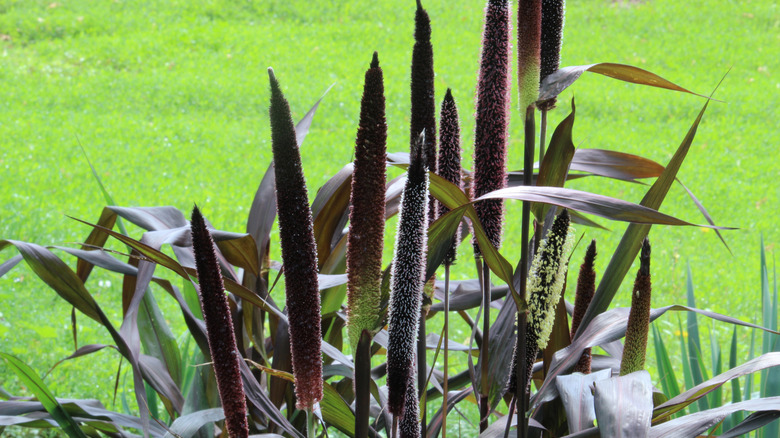
photographer/iStock
Purple millet (Pennisetum glaucum) is one decorative grass you should definitely have in your garden if you love purple shades. It’s also known as Purple Majesty and is a winner of the All-American Selections Gold Medal according to Wisconsin Horticulture. As a warm-season grass, purple millet grows at the beginning of summer to the end of the hot season, as well as throughout the fall, says Proven Winners. It also needs up to six hours of full sun to thrive but is relatively easy to maintain.
3. Golden bamboo
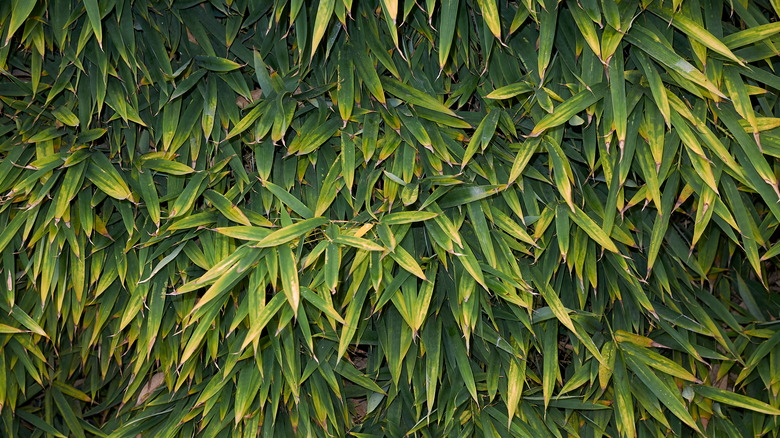
simona pavan/Shutterstock
Golden bamboo (Phyllostachys aurea) not only serves as a good source of an air purifier but also adds sheen to the garden with sunshine in the afternoons. The golden bamboo flower is a rare activity that occurs every seven to 12 years, according to Texas Invasive Species Institute, and its stems resemble the expected form with hollow canes and rigid joints. Also, the use of golden bamboo for curbing privacy infringements is a common thing, so if that’s a concern you have, this grass is an ideal option.
4. Cloud grass
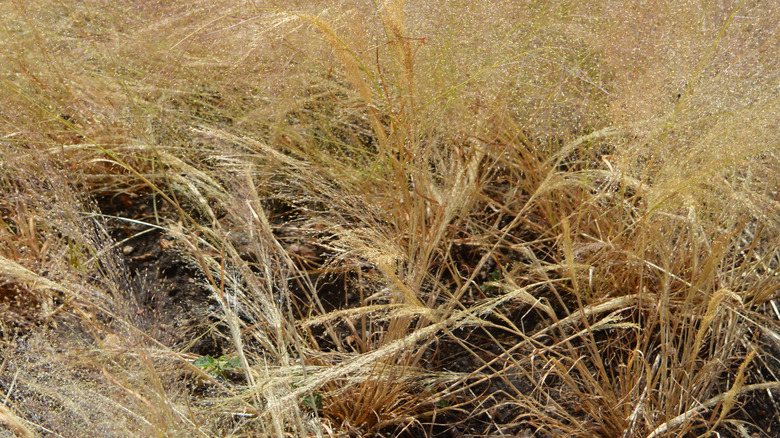
Nik Cain/Shutterstock
Want to maintain a collection of green plants? Cloud grass (Agrostis nebulosa) will help you achieve that. According to Gardeners’ World, this particular type is known for its panicles that carry tiny white seedlings, and it’s perfect for indoor beautification. Outsidepride further notes that cloud grasses can serve as a fill-up for leftover spaces in your garden. Mixing this ornamental plant with other colorful grasses will take your garden from 10 to 1000.
5. Switchgrass
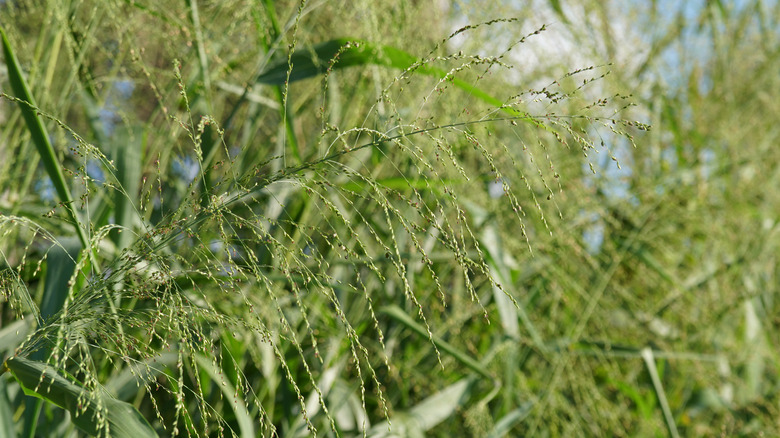
Doikanoy/Shutterstock
You will perfectly adore the green beauty the switchgrass (Panicum virgatum) gives your garden. According to Wisconsin Horticulture, the plant’s leaves have little white hairs and can change from tinged red to different shades of yellow during the fall season. During winter, the foliage turns a beautiful beige, as noted by Gardenia. The best part about this plant is that it is less vulnerable to insect attacks and keeps your garden free from harmful pests.
6. Pampas grass
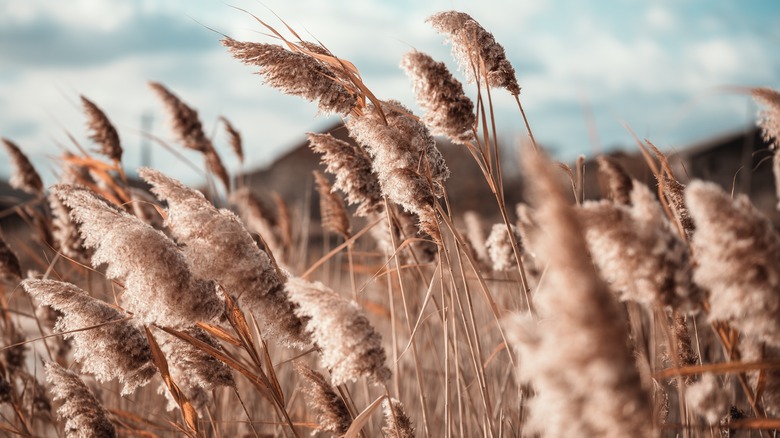
Julia Strekoza/Shutterstock
Pampas grass (Cortaderia selloana) is a beautiful decorative grass native to Brazil, Chile, and Argentina but thrives well in other regions, says UGA Extension. The plant grows as clumps of green leaves with cream-white or pinkish feathers at the tips. When planting the pampas grass, it is recommended by Gardening Know How to reserve enough space for it as it requires a rather large area to thrive. Growing anywhere from 5 to 10 inches tall, this grass type is considered invasive in certain regions, so check your state laws before planting it in your yard.
7. Golden oats
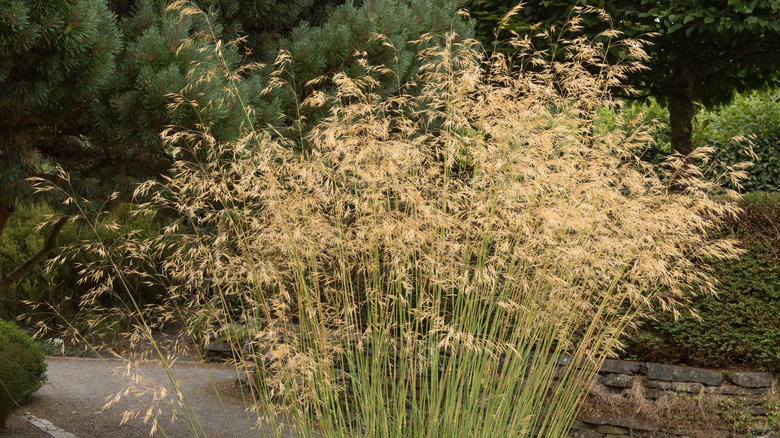
Peter Turner Photography/Shutterstock
The golden oats grass (Stipa gigantea) comes to add that extra height to your garden with its bursts of colors. Another name for this plant is Spanish giant golden oats, as explained by Candide. It has slim greyish-green leaves with golden anthers and silver spikelets. This grass is drought-tolerant, requires less maintenance, and blooms quickly. The golden oats plant won the Award of Garden Merit of the Royal Horticultural Society in 1993, as per Gardenia.
8. New Zealand hair sedge
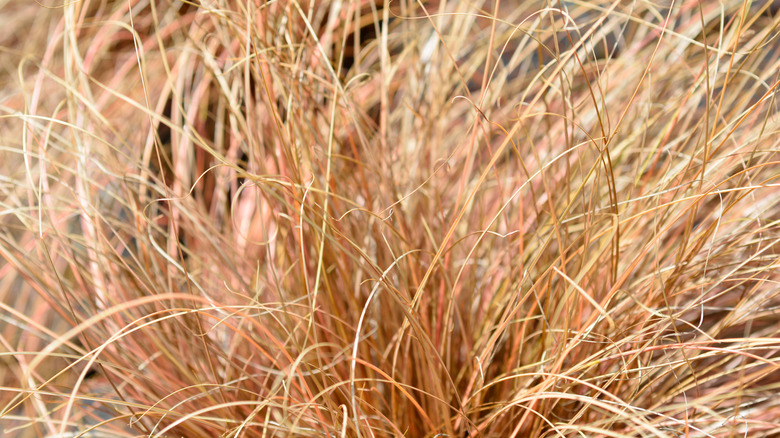
Nahhana/Shutterstock
New Zealand hair sedge (Carex comans) is one beautiful plant that’ll wow your sight when spotted. Gardenia notes that this cultivar is very popular as an ornamental grass due to its all-around availability and especially its color change to orange and copper during winter and summer. However, although this decorative plant grows flowers, it is insignificant for propagation purposes, says North Carolina Extension Gardener Plant Toolbox. The New Zealand hair sedge loves full and partial sun and should be planted in moist, rich soil.
9. Japanese forest grass
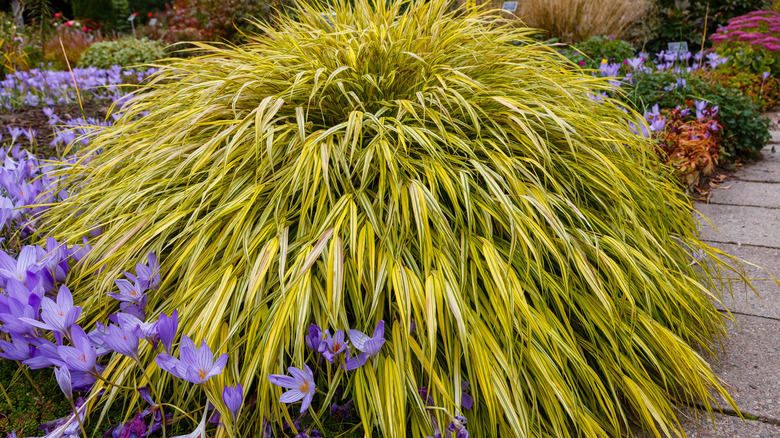
Flower_Garden/Shutterstock
Want something golden for your garden? This golden Japanese forest grass (Hakonechloa macra ‘Aureola’) is one attractive ornamental plant you won’t want to miss. Golden Japanese forest grass blends well into your plant collection and adds extra shine to the environment. The plant grows slowly according to Gardening Know How but can never become invasive in the future. Its also thrives well in summer and requires extra care, but it’s worth every time.
10. Blue lyme grass
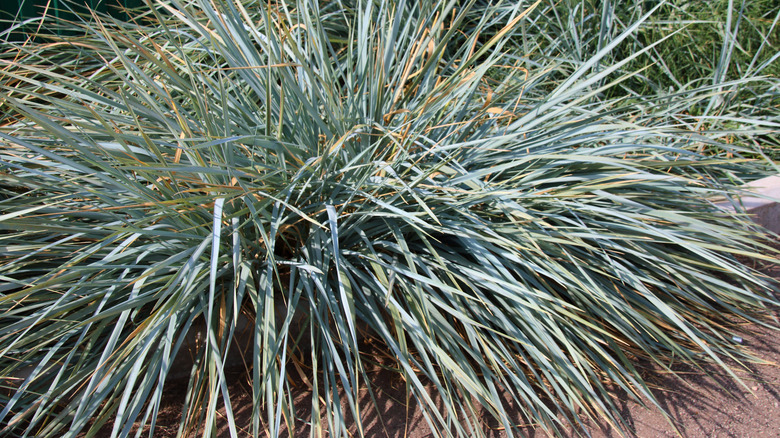
photowind/Shutterstock
Blue lyme grass (Leymus arenarius) is always a showstopper. It stands tall with its silvery-blue foliage color and brown flowers at the tip. It is one plant to help you control the environment and guard against erosion during heavy rainfall, according to Monrovia. Blue lyme grass’ foliage is deer and rabbit resistant, as per Gardenista, but its aggressive spreading can become a nuisance for some homeowners. To that end, ensure you plant it in the right spot.
11. Fiber optic grass
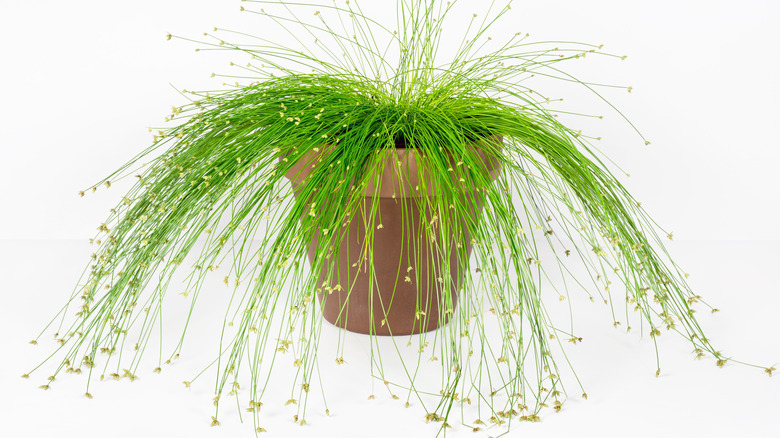
Susan Law Cain/Shutterstock
Thinking about an ornamental plant that fits into a ceramic pot beautifully? That’s the fiber optic grass (Isolepis cernua), GardenBeast says. It’s a green plant with red flower spikes that resembles a living fountain. According to Wisconsin Horticulture, the grass is also known as Fairy Lights or Livewire and makes an excellent and bright houseplant. This greenery type also shifts color to light yellow as the season changes, giving your interior that extra glow that your home definitely needs.
12. Leatherleaf sedge
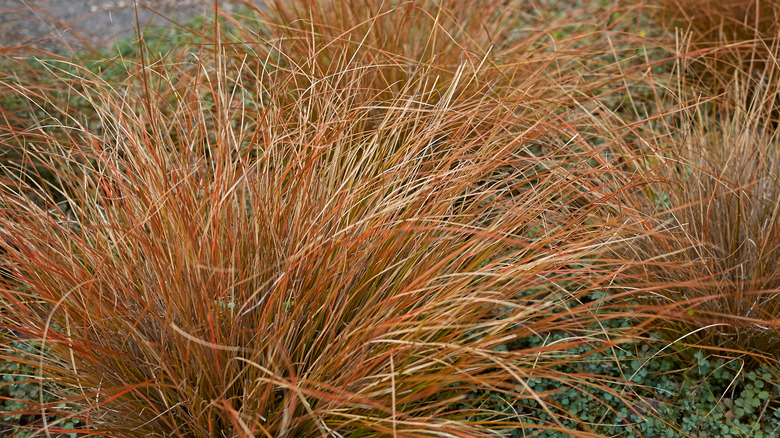
simona pavan/Shutterstock
This plant colors your garden with a pop of bronze-red but it is also perfect for growing in flower pots. The leatherleaf sedge (Carex buchananii) is a low-maintenance, attractive decorative grass with curly leaf tops. Fine Gardening states that the leatherleaf sedge is slightly volatile to aphids and may be short-lived. Despite this, it grows and moves well with other plants due to its less invasive feature, says Gardenia. The grass loves fertile, moist soil and does great in partial shade.
13. Japanese blood grass
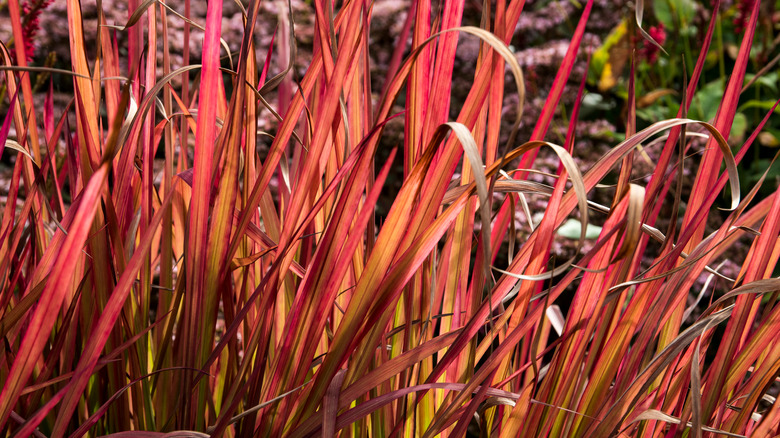
Wiert nieuman/Shutterstock
The Japanese blood grass (Imperata cylindrica) is another ornamental plant that shows its uniqueness anywhere. This grass type grows in clumps with a green-colored stem but bright red tips; the Japanese blood grass changes its tip color from pink to blood-red during summer, according to Gardenista. The cultivar is drought tolerant and grows slowly with sterile rhizomes, according to Dengarden. Also, note that this grass can turn excessively invasive when it turns all green.
14. Ruby grass
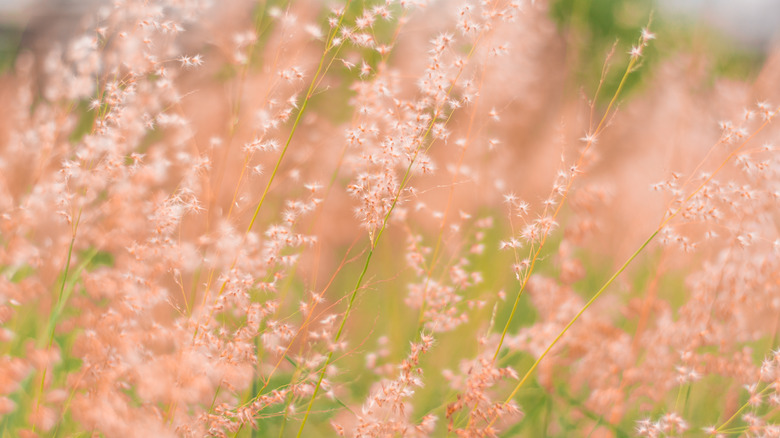
Supawit Srethbhakdi/Shutterstock
The delicacy of the ruby grass (Melinis nerviglumis), perhaps gave it the second name of Pink Champagne as it provides a subtle blush to your garden. Ruby grass has slim bluish-green leaves with pink anthers at the tips and mixes well with other colorful plants. It also adds an outstanding look to your interior space and thrives well in hanging baskets or flower pots. According to Fine Gardening, ruby grasses have better chances of blooming all year round in colder climates.
15. Blue fescue
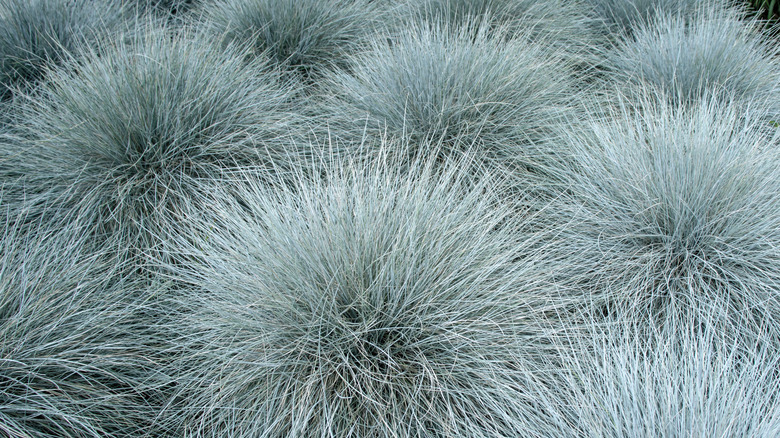
Svetlana Zhukova/Shutterstock
This is a small, beautiful ornamental grass. Blue fescue (Festuca glauca) has clumpy silver-blue with slim whitish needle-like leaves. It’s an evergreen plant that maintains its adorning sight and color all year round, according to North Carolina Extension Gardener Plant Toolbox. It even thrives well in rock gardens as it is drought resistant and repels deers, says GardenBeast. With this blue fescue in your garden, you’ll surely love the perfect attraction it gives.

